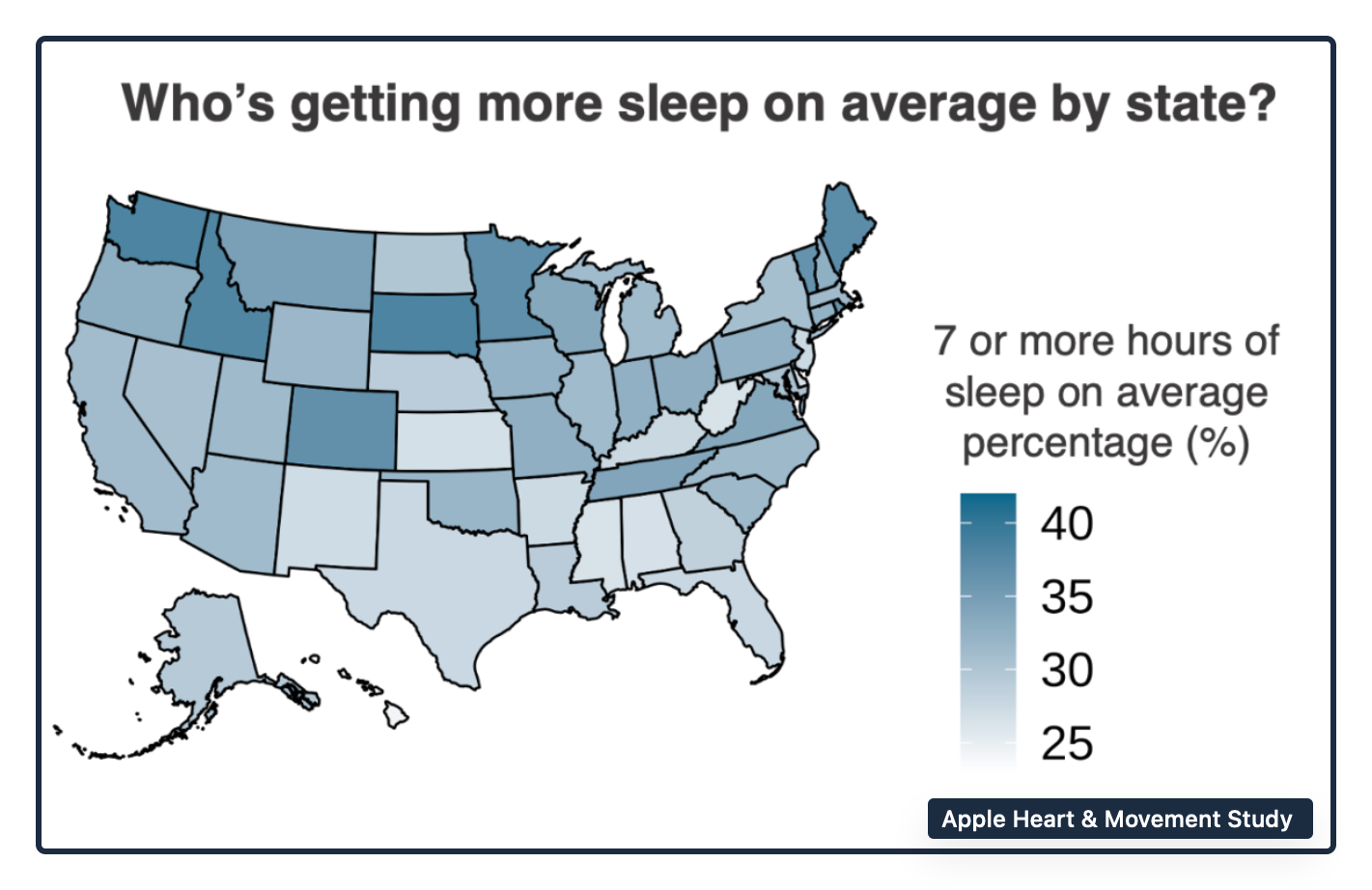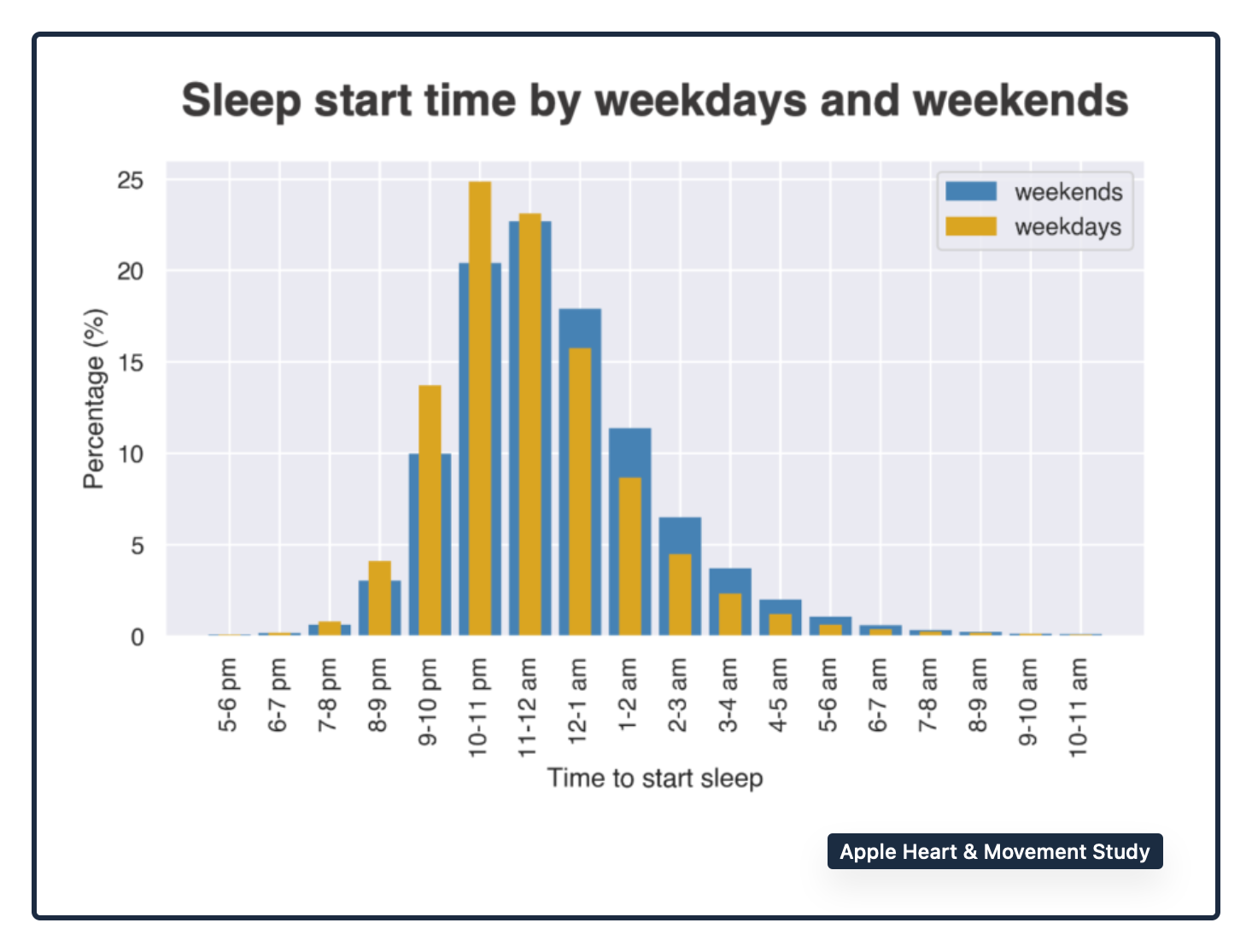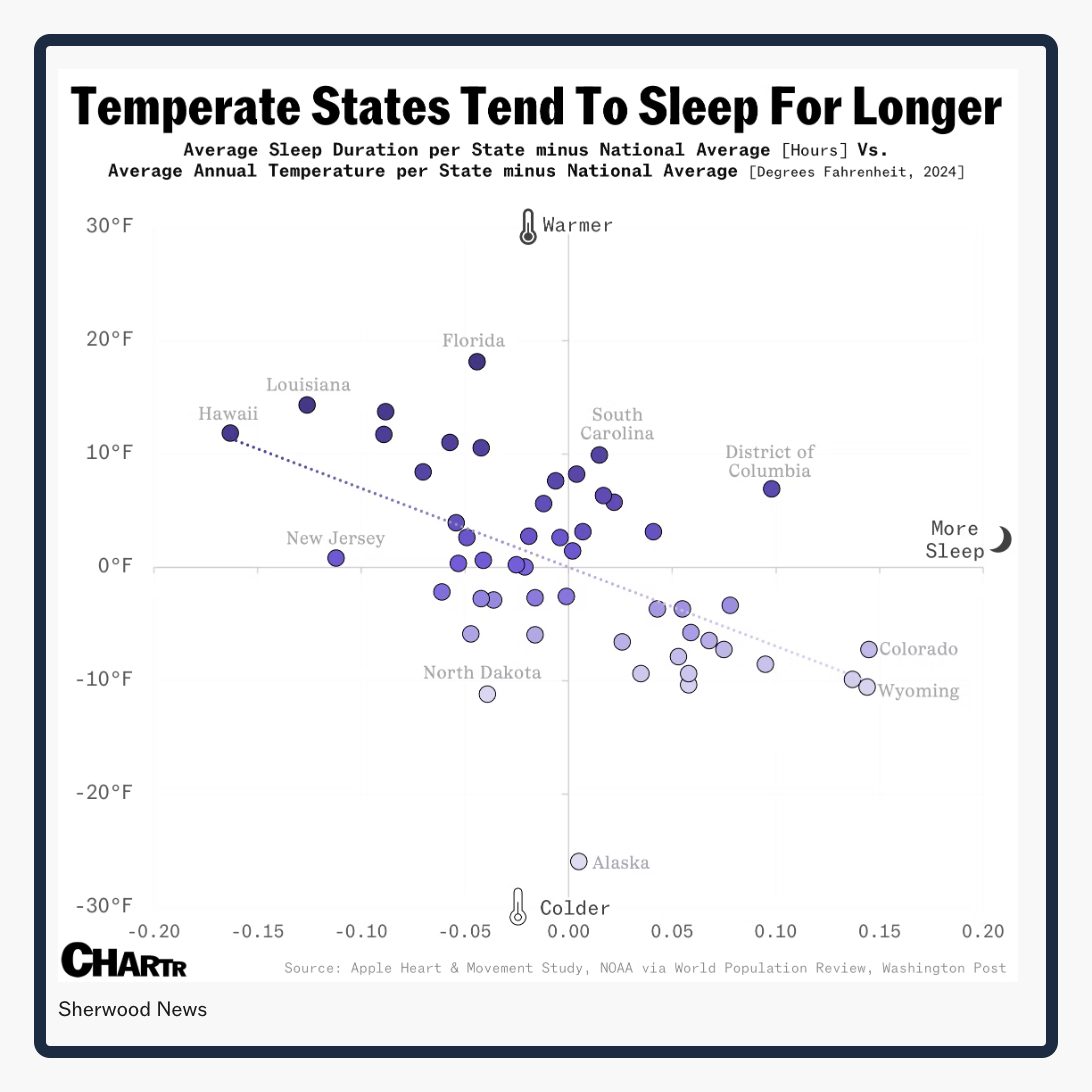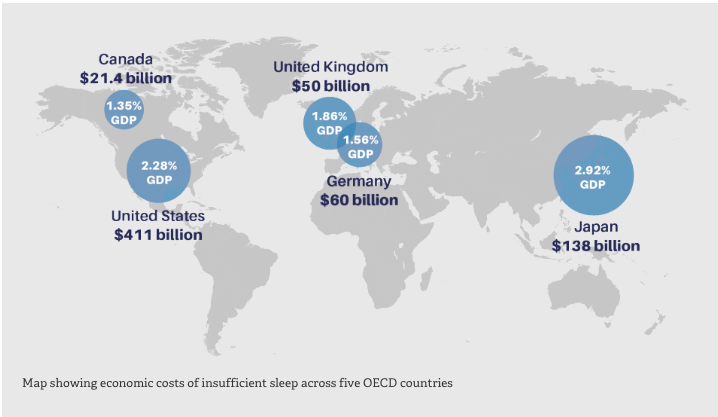
What We Really Mean By Socialism (and Capitalism)
September 10, 2025
What the Misery Index Says About Our Happiness
September 12, 2025Some of us sleep more than everyone else.
But it could depend on where we live:

And whether it’s a weekday:

Sleep Time
Colorado and Wyoming top the sleep list while my own state, New Jersey, sleeps less.

Using data from our Apple watches through an Apple/Mass General study, researchers concluded that our average bedtime is 11:37 pm. Since our average sleep time is 6 hours and 40 minutes, and we should get 7 to 9 hours of sleep, an 11:37 bedtime is too late or we awaken too early.
However, our bedtime might not matter. While Hawaiians went to sleep the earliest (11:06 pm), at 6 hours 31 minutes, they slept the least. And, study participants in Washington, D.C. (11:56 pm) and New York (11:53 pm) went to bed the latest.
But of course there is so much more. Considering parenting, predictably, people without children slept an extra 25 minutes between 2003 and 2022–especially women. From 2019 to 2022, women with no children slept 13 more minutes whereas dads added just 5 minutes. And, men without children do get more sleep–30 minutes more–than their “brothers” with kids.
The Apple/Mass General study also tells us that the length and consistency of our sleep time link to our mood and our heart health. In addition, we could note a GDP connection.
Our Bottom Line: Productivity
Emphasizing that we are relying on correlation rather than causation, still we can wonder if more sleep makes Luxembourgers more productive:

According to a Rand study that covered more than 62,000 UK workers, the U.S. GDP is 2.28% lower because we don’t sleep enough. Translated into workdays, the total is 1.23 million that we missed.
But we are not alone. Less sleep in other developed nations has been blamed for lower productivity:
Based on this Rand report, just 10 more minutes of sleep could add billions of dollars to our GDP.
My sources and more: Always handy for an interesting fact, Sherwood’s Chartr had the sleep story. But in past posts, including here and here, econlife shared the different sides of sleep. And this study connected its data to heart health. Then, less recently, Rand looked at the impact of insomnia on productivity and the economic costs of poor sleep as did the World Economic Forum.
![econlifelogotrademarkedwebsitelogo[1]](/wp-content/uploads/2024/05/econlifelogotrademarkedwebsitelogo1.png#100878)





